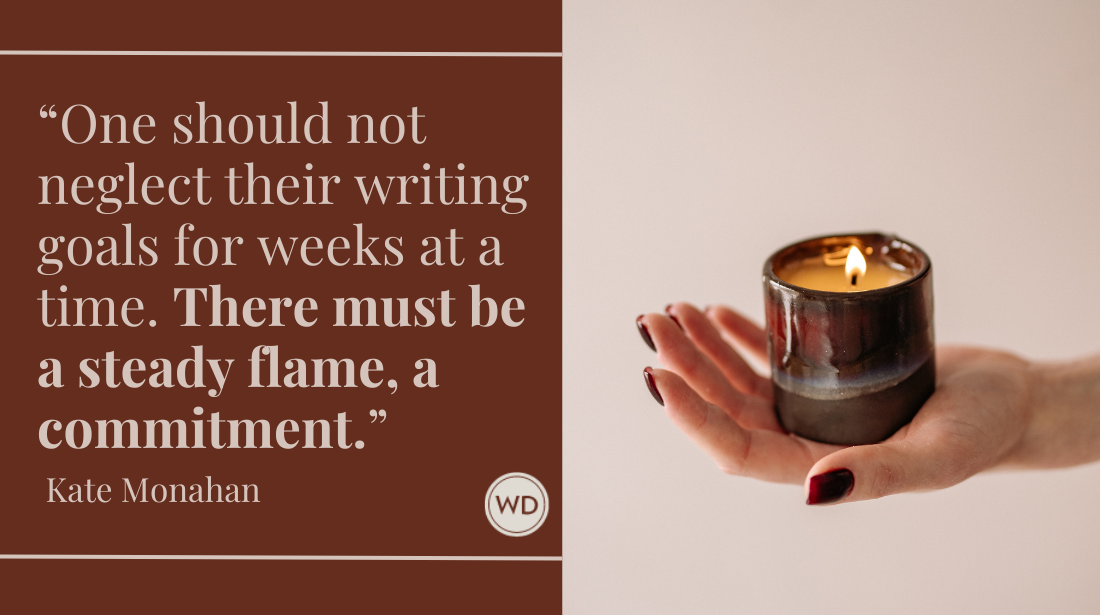Am I getting worse? Thoughts on self doubt
This is what I’ve been thinking lately: I’m getting worse. My writing just isn’t as good as it used to be. With every new story I write I believe I’ve…
This is what I’ve been thinking lately: I’m getting worse. My writing just isn’t as good as it used to be. With every new story I write I believe I’ve lost something—the spark, the raw energy, the ability to see the scene, to tell the truth, to imagine. I look at my stories and feel like they could be so much better.
Flash back years ago when I wrote a story for a continuing ed. fiction class. I wrote this particular story in one night, working feverishly for six hours. I had the ending in my mind and I was racing towards it. The story was a blast to write. It came easily, fluidly, and I was cracking myself up, too, calling out to my husband in the other room, “Honey, listen to this killer line I just wrote.” Not good. Not good when you call to your husband in the other room to tell him how talented and funny of a writer you are. But I was proud. I was writing the story The New Yorker would scoop right up. What was overtaking me? Cockiness? The attitude of an amateur?
InIf You Want To Write Brenda Ueland wrote, “If you are never satisfied with what you write, that is a good sign. It means your vision can see so far that it is hard to come up to it. Again, I say, the only unfortunate people are the glib ones, immediately satisfied with their world. To them the ocean is only knee deep.”
I was an unfortunate one, a glib one. I thought this story was something pretty special. I wrote it in one great flash and then sent it out to literary journals. I remember getting responses like: Well, this story was interesting. Interesting. Not the word you want to necessarily hear, as often it’s the word people use when they don’t want to say terrible.
Even though my professor loved the story, I’m also pretty sure he generously left out the feedback and criticism the story needed. But I was green, he knew that, and he was caring enough to give me encouragement. We need that in the beginning, I believe— the permission to keep going. And so I kept writing and kept believing in myself.
Now. Here I am. And everything I write just stinks. It has for a while. At dinner the other night I told my husband that I was scared. I was scared because I’ve never questioned my artistic faith as much as I have lately. Before, I had the “it will happen” mentality. It took time and I knew that. I never feared the long road. But now I feared something worse: maybe I just wasn't good enough.
My husband, who was seeing and thinking clearly, had a suggestion: Maybe the more you write, he said, and the more you learn, the more critical you are. A tiny light flicked on in my mind. Maybe I didn’t suck! Maybe I was just being hyper critical, being too hard on myself and my work. A mentor once said to me: Your work isn’t yours to judge. It’s true, judging is a whole other ball of wax, it’s different than being constructively critical. Judging seems too wrapped up in a mood, a sensibility.Well, I could allow this idea to grow inside of me. This idea that my new critical eye was feeding my self doubt.
Thankfully, I stumbled upon a blog post by seasoned writer Dani Shapiro when I needed it most. In an excerpt titled On Self Doubt, Shapiro writes:
“With each of my successive books, I have loved my work a bit less. And, interestingly enough, the work has grown better. It seems that loving my work wasn't doing me any good at all.Grace Paley used to say that if she loved a sentence enough that she wanted to get up from her desk and walk into the other room to read it to her husband, she knew she had to cut it. At the time, as a graduate student, I wasn't sure what she meant. Wasn't it a good thing, to love one's own sentences? But as with many of the remarkable bits of wisdom Grace shared, this has bloomed in my mind, over time.”
By loving our work, we can do ourselves a disservice. My eagerness to share sentences with my husband was common, but a sign of my lack of experience, my glibness. But (!) we must also remember not be so judgmental of our work that we become overwhelmed, paralyzed. When the voices start…Who are you to believe you have the talent? There are so many better, more talented writers out there. Just give up… we mustunderstand the inner dialogue is part of the ebb and flow. As writers our artistic faith will falter. Every time I raise my own bar, I suffer from a new bout of uncertainty. It’s inevitable. But no matter what, I do know this: I refuse to settle for knocking my own socks of with a pat story. No, I’d rather strive for something more ambitious, even though it’s more challenging and I’m ultimately more critical of it. When it’s done, I’ll send it off to someone else, let them judge it. And in the meantime, I’ll do the only thing I can do: I’ll keep working.
“And by the way, everything in life is writable about if you have the outgoing guts to do it, and the imagination to improvise. The worst enemy to creativity is self-doubt.”
~Sylvia Plath
photo credit: artfulwriter








